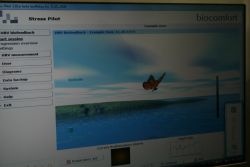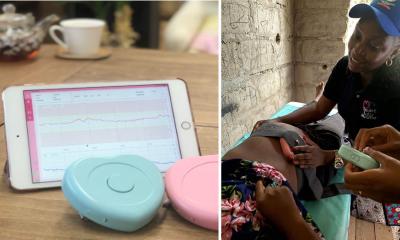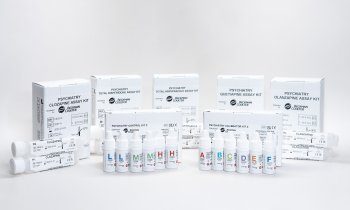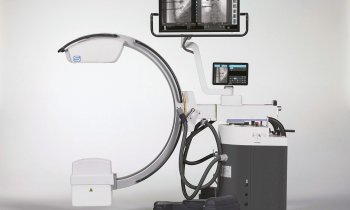Stresspilot navigates to a healthier life
"Be active and live healthy!" You would love to do that but you are too busy just trying to juggle your daily life? Help might be underway: the Stress Pilot. Developed by Biocomfort and presented at this year's MEDICA, the Stress Pilot is a software solution to monitor and reduce personal stress levels. Thus, the product offers an important contribution to the prevention of stress-induced diseases such as arrhythmia.

“Based on breathing, the Stress Pilot guides the owner to improved physical relaxation and thus to greater heart rate variability”, says Markus Haas, Marketing/Product Manager Diagnostics at Biocomfort.
The system includes an ear sensor which transmits the pulse rate via bio-feedback to a software and displays it on a monitor. The owner can select either professional or “layman” mode. Both modes present heart rate variability and breathing frequency. In layman mode a butterfly symbol motivates the owner to breath deeply and in a well-balanced way. Deep breathing (approx. 6 breaths/minute) directly impacts heart rate variability. High heart rate variability is an indicator for a relaxed and balanced bio-rhythm.
The Stress Pilot offers simple monitoring and is particularly well-suited for home monitoring of myocardial infarction patients. Currently, the Stress Pilot is available in Germany, France and the USA. In Germany, the device which provides a significant contribution to personal health, is being sold in pharmacies for 199 €.
Further information: www.biocomfort.de
15.11.2007








